6 Camera Choices For An African Holiday
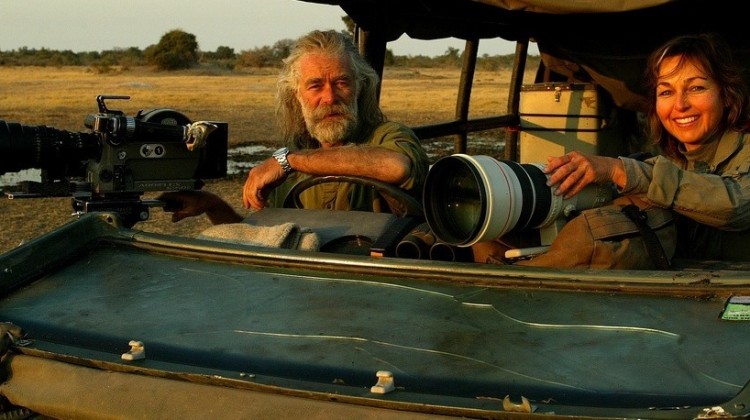
Which Safari Camera?
There’s no right answer to the question ‘Which camera is best for a safari holiday?’ since there’s not just one type of safari, nor will there be simply one kind of holiday photo you want to bring home. So let’s look at what cameras you might take with you and which safari holiday situations they will work best in.
1. Bridge cameras
‘Bridging’ the gap between a compact camera and a DSLR is the bridge camera. Unlike an SLR there’s no chance of swapping lenses, but the optical zoom is likely to have a bigger range than on a compact getting you closer to safari holiday action. While the added bulk of a bridge camera means more to lug around on holiday, a distinct disadvantage on a fly-in safari where weight limits matter on small planes, it does give a better feel and produce a steady platform for taking photos. Coupled with image stabilisation and perhaps a bean bag to rest on, photos can be taken of animals in the distance without the dreaded shake of smaller cameras.
The level of control is generally higher than on a point and shoot, allowing longer exposures in low light, or faster speeds for moving animals, although the camera’s reaction time can be slower than a DSLR meaning the photo you take is after the action is over. The built in viewfinder of a bridge camera can come into its own in the bright light of an African safari holiday where the screen on the back of a compact camera or smartphone can become impossible to see.
Bridge cameras; best camera for: Those wanting high quality close up safari photos without the expense of a DSLR
Wildlife photographer @MichaelDanielHo describes himself as having a passion for travelling and conservation. He suggests that “While rarely professional grade, bridge cameras are compact and versatile”
2. DSLR cameras
Traditionally DSLRs (Digital Single Lens Reflex) cameras are the tool of the professional photographer, although serious amateurs will use them for holiday photos, particularly for something like a safari where their versatility comes to the fore; with a multitude of lenses, filters and battery packs available and interchangeable. Sensor size matters when prints get big, so if you want to print your holiday photos onto an A3 canvas or bigger, a DSLR is likely to give sharper results than a bridge camera.
Cameras are only ever as good as the lens and if you don’t like the lens on a DSLR, or it’s not suitable for the photo you’re taking, you can change it. This is probably the biggest advantage of a DLSR and something that’s not possible with any of the cameras mentioned above. Long lenses give the opportunity for a real close up such as this one from the fabulous photos on David Yarrow’s website
Extra lenses will mean a heavier camera bag, something that’s not always ideal on a safari holiday, where luggage can be limited, but more lenses do give more options. That said, changing lenses on safari always opens up the risk of dust getting onto the sensor; something to bear in mind in the back of a game viewing vehicle.
DSLR cameras; best for: Serious photographers who want extra lenses and multiple setting options to get the perfect safari photo, and who are prepared to pay for extra seats on light aircraft to take their heavy kit on holiday.
A professional’s view on DSLR’s
Susan Portnoy who photographs and blogs as The Insatiable Traveller says of DSLRs “Lens flexibility is the main reason I prefer to use a DSLR on safari. There are so many lenses to choose from with extended focal length. Many reserves and national parks throughout Africa don’t allow vehicles to go off-road, meaning that if you see a rhino in the distance and there’s no path leading in that direction, you can’t drive closer for photographs. That’s where long lenses really come in handy, especially if you want close ups without having to severely crop your images.”
3. Smartphone
It’s often said that the best camera is the one you have with you, and with most of us carrying smart phones with us all the time, you’re very likely to have a phone in your pocket when the chance of taking a photo arises. Even on a safari holiday, where you’re less likely to be calling home or checking Facebook, force of habit may mean your phone is tucked in your pocket, and therefore perfect for those static candid holiday shots in good light that don’t need a zoom (more on movement, low light and zooms later)
Sharing holiday photos is another huge advantage of a smartphones. You’re just a wifi connection and one click away from making your friends jealous with photos of you on your safari, while you’re still on holiday, and of course there’s the option to use the front facing camera for a holiday selfie!
Even post production is easy with a smartphone with plenty of apps dedicated to helping turn your quick holiday snaps either into something you can be proud to share, or something funky and fun. These apps are not Photoshop but that’s not the point with these cameras. And while the camera is just one function of a smartphone, they can take some pretty impressive photos as the winners of the iPhone photography awards prove.
Smartphone cameras; best camera for: Always having with you on holiday.
Specialist photographic guide Gerry van der Walt @gerryvanderwalt says “Everybody who has a smartphone is on a photo safari. The ease of use and ability to share instantly is something that makes it popular. Who knows what the future holds! :)”
4. Point and shoot
Small point and shoot cameras, also known as compact cameras, are typically one step up from a cameraphone in terms of resolution and zoom.
Compact cameras tend to have wider apertures and larger sensors, improving the image quality at all light levels, particularly important on safari where some of the best wildlife photos come from early morning or night game drives. They’ll also have a more powerful flash which, although it won’t help for photos of animals since it’s often banned, can be used to fill in foregrounds when the background is very light – that photo of your friend in front of an animal filled Masai Mara.
Probably the biggest difference is zooms. On a safari holiday you’ll relatively frequently take a photo of something in the mid-distance, or want to zoom in on a particular feature of an animal. While the cameras on smartphones use digital zooms, reducing the quality of the resulting photo, compact cameras will perhaps have a 10x optical zoom which will improve quality.
Battery life, cost and manual settings are other advantages for those who take a compact camera on holiday, but for those wishing for the greater flexibility that manual settings offer, bridge and DSLR cameras might be even more suitable.
Point and shoot cameras; best camera for: Having in your pocket on a walking safari or letting your children use on a family holiday.
What the professionals think of point and shoot safari cameras
Ross Couper @rosscouperphoto who contributes to Facebook and Twitter for @singita says of point and shoot cameras: “There is so much action that surrounds a safari experience that capturing every moment is a must. The words ‘time flies when you’re having fun’ are true and you would want to embrace the moments through photographs. Point and shoots are a great to go to camera because of their high megapixel count as this will allow you to print high quality prints unlike a mobile device.
Coffee table books are easy to print these days and you will want to ensure you have a defined quality of photographs. Also the various settings on a point and shoot cameras are easy to navigate and it will allows anybody to take pictures of you with the staff at your destination (as they are always the unforgettable part in your safari experience as these are the people you truly want to pack in your luggage and take them home with you) – this is a better option rather than to rely on a selfie version.
Further a must to photograph is the group sundowner, again this will allow either the tracker or guide to take the photo – or if you all want to be included in the shot, a point and shoot is versatile in the way it can lean on a rock or on the vehicle with a self-timer – these candid moments leave a huge impression when you return home and look through your pictures.
Another plus of a point and shoot is that it can fit in your pocket so unlike a DSLR – it is not cumbersome to carry and you will always have it ready as the bush always presents surprises when you are not expecting – this way you are always ready!”
5. GoPro
Want the most versatile camera for cool holiday action shots? A safari camera that can withstand being dropped? Or in water, or rattled around attached to a safari vehicle, quad bike, riding helmet? Or strapped to a selfie stick for photos with you in the foreground and one of Africa’s stunning landscapes in the background? Then a GoPro (other action cameras are also available) is probably one of the cameras to pack in your holiday luggage, or to strap to your chest. Let’s face it, they’re not heavy and don’t take up too much space.
GoPros allow you to take photos or video all the time and then choose the best one. Whereas other cameras are reactive and wait for you to set up and click the shutter. This does mean you’ll need to edit your footage to a small number of quick high intensity shots – probably no more than about 25 seconds of video or photo montage if you’re expecting any teenagers to invest their time to watch it – but if you’re using it regularly, your chances of catching the action is much higher.
GoPro; best for: Capturing holiday action anywhere and at any time without worrying about dust, water or vibration.
Alex Walters from Great Plains @GreatPlainsCons says GoPros are great for “Wide-angle, action video, ruggedness and versatility. You don’t know exactly what footage you’re going to get, but that’s part of the fun – just like getting your old film or slides back from the developing lab!”
6. Eyes and memory
Ok so they’re not really a camera, but many years ago a friend told me to put my camera down and take ‘photos of the mind’. While that all sounds a bit hippy, I think there’s a lot of value in enjoying your holiday without feeling you have to take home safari photos to compete with a National Geographic photographer.
In fact as African specialists one example of us doing this is our recommendation that people arrange two gorilla tracking days. So they can get the photos out of the way on the first day and then simply enjoy the gorillas on the second day using their eyes rather than just seeing them through a viewfinder.
Amanda Ritchie says the following on the Londolozi blog “Taking photographs in the bush is an incredible experience in and of itself, but remember to experience the moments in the bush, too.
If the light has faded, and you’re battling to get the shot that you really want, why not put your camera down and let your senses take over. Smell the dust as it settles, feel the early morning mist, absorb your surroundings and feel the ebb and flow of the bushveld all around you. Capture your memories on your camera, but don’t forget to truly live your safari.”
7. Mirrorless cameras (a bonus field following a comment on the blog)
In January 2018, reader Carol Archdale commented: “I am very surprised that you haven’t mentioned mirrorless cameras which are excellent cameras for travelling as they aren’t as heavy as DSLR’s.”
Although they’ve taken longer to catch on in the UK and USA, mirrorless cameras should certainly now be included in any discussion of cameras for safari. In recent years in Japan mirrorless cameras have been outselling DSLR’s.
Unlike a DSLR which uses a mirror to bring the image seen through the lens to the eyepiece of the camera, in a mirrorless camera the display on the back of the camera and the one in the viewfinder are both digital images.
They certainly are typically smaller and lighter as Carol said, but currently, and this is changing quite quickly, there are fewer lenses available for mirrorless cameras and the viewfinder on a DSLR offers a higher quality image. In many other ways – autofocus, previewing images, image stabilisation, image quality and playback – they are equal, but for video and shooting speed, mirrorless cameras lead the way.
They are another option for serious photographers to consider and in time will possibly become the main option.
Any questions?
If you’ve got this far and not found an answer on safari cameras, or you think there’s something more about cameras for safari holidays that we should have included, please ask in the comments section below, or pop us an email. We’ll be sure to reply and may amend the article to include our answer.
What Next?
Whichever way you choose to capture photos on your safari holiday, we’re happy to help with advice. We’ve got keen photographers among the team at Aardvark Safaris for the relatively easy stuff. We are pleased to be working with David Murray, a professional photographer based in the UK and Africa, for the tougher, geeky questions. We can suggest camps with hides, the best lodges for private vehicles, specialist photographic holidays, or simply match you with guides who understand photography.
It’s now down to you: give us a call or drop us an email and we will do the rest.
Keen Photographer? You Might Also Like These Blogs
Richard gives his ideas for better wildlife photo options in his article “4 Tips For The Best Photographic Safari” while Lucinda looks at “Photographing A Wildebeest Migration ‘River Crossing” in her latest blog.
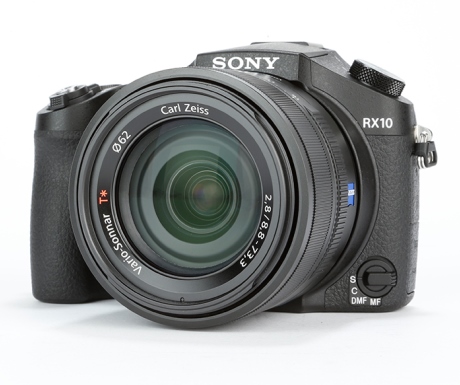
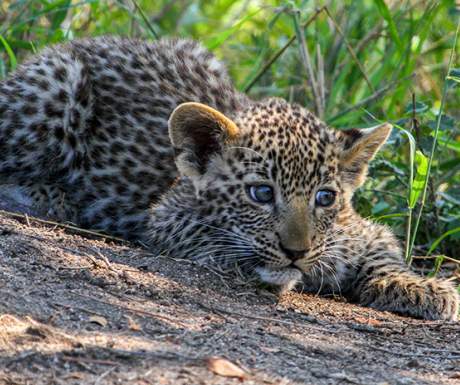
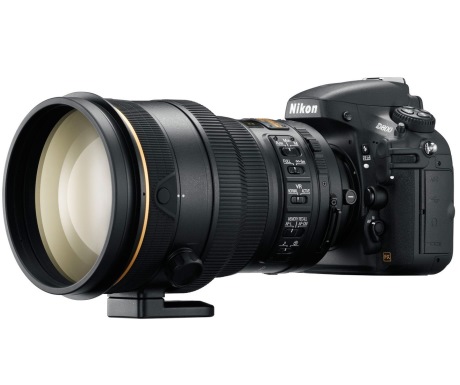
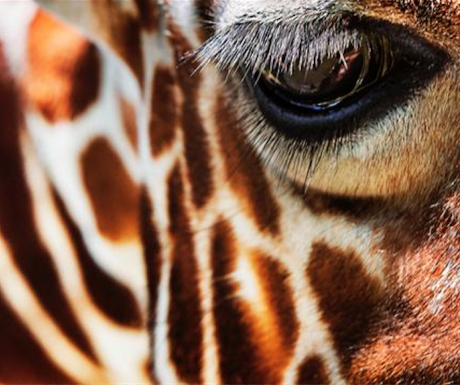
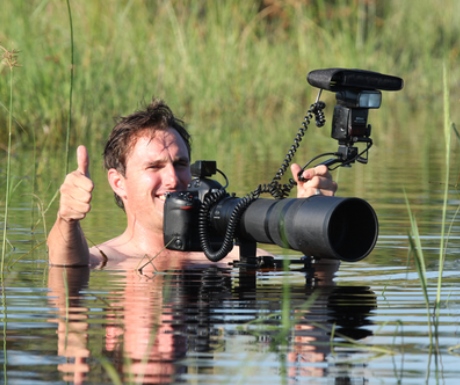
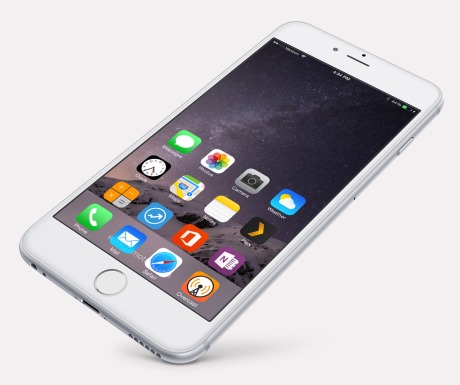

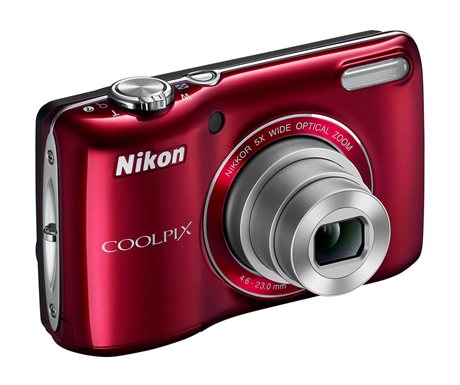
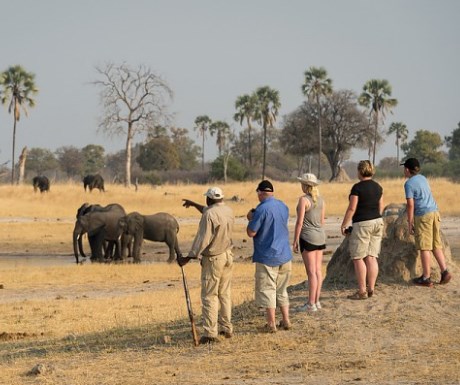
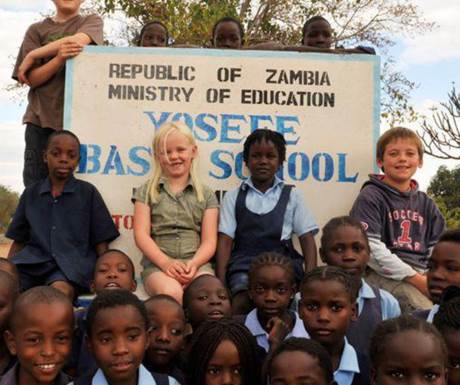
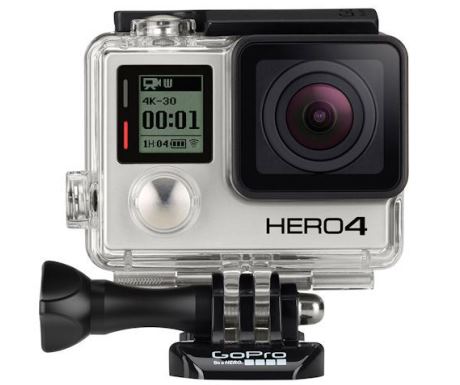
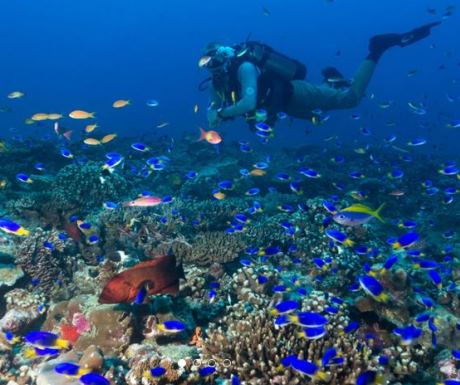
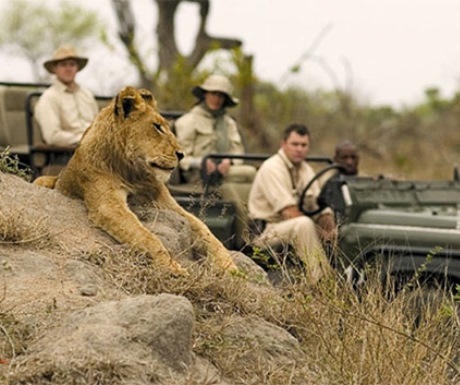
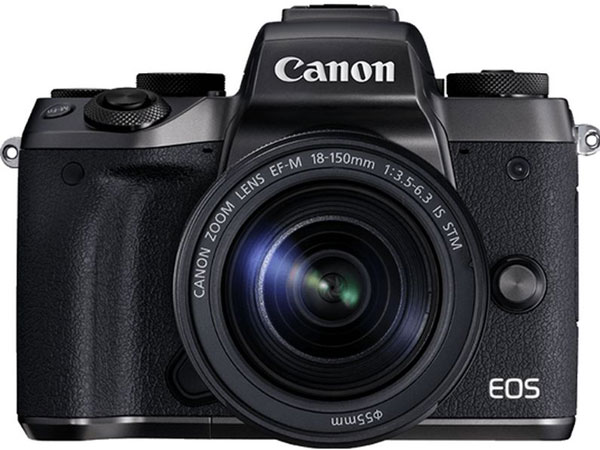
i’m a yr 10 student doing world challenge and im going to northern Tanzania, i was wondering if you have any advice on which camera i should buy because there’s sure to be some great opportunities
Dear Izaac
Thanks for the question. You’re going to have a great time.
As I often say “The best camera is the one you have with you”. If you’ll always carry a camera with a better optical zoom, you’ll get better pictures. However, if you’re not going to carry it with you all the time, then it’s a waste to buy it – get a good point and shoot and make sure you have it in your pocket.
Also remember photography isn’t all about having the best kit. It’s also about creating opportunities, which a good guide can help you with. You can also do a lot by having a “good eye”. Take a lot of photos and see which ones work. Be brutal and delete the ones that don’t. No-one is interested in hundreds of average photos – keep a few very good ones, or ones that mean a lot to you.
Have a super trip and thanks for asking the question.
Yours, Richard
Hi, My name is Elsa Chan, I m going to go to Kenya on July 20,2017. I wanna buy a video camera for take some video, but I don’t want big one, I wanna a mini one, it can fit on my head easy for carry . What do you have recommend to me. Thank you very much!
Dear Elsa
Having researched Go-Pros for an action camera for my daughter, we settled on what she calls a No-Pro, an SJ-4000. It did exactly what she wanted and cost less than the equivalent Go-Pro. Have a look at them, but if you go for it make sure you get a real one as it seems there are a lot of fakes.
Good luck and enjoy Kenya.
Yours, Richard
Hi, My name is Elsa Chan, I m going to go to Kenya on July 20,2017. I wanna buy a video camera for take some video, but I don’t want big one, I wanna a mini one, it can fit on my head easy for carry . What do you have recommend to me. Thank you very much!
Dear Elsa
Having researched Go-Pros for an action camera for my daughter, we settled on an SJ-4000. It did exactly what she wanted and cost less than the equivalent Go-Pro. Have a look at them, but if you go for it make sure you get a real one as it seems there are a lot of fakes.
Good luck and enjoy Kenya.
Yours, Richard
Hi, My name is Elsa Chan, I m going to go to Kenya on July 20,2017. I wanna buy a video camera for take some video, but I don’t want big one, I wanna a mini one, it can fit on my head easy for carry . What do you have recommend to me. Thank you very much!
Dear Elsa
Having researched Go-Pros for an action camera for my daughter, we settled on an SJCAM SJ-4000. It did exactly what she wanted and cost less than the equivalent Go-Pro. Have a look at them, but if you go for it make sure you get a real one as it seems there are a lot of fakes.
Good luck and enjoy Kenya.
Yours, Richard
Hi Richard! I’ve just purchased a Panasonic Lumix ZS60 with 30X zoom and wonder if this is sufficient for me to get some decent pictures during a safari in Africa later this year. I’ve read reviews, comments, etc at dozens of sites and my mind is a blur with so many different cameras. Since I don’t entirely understand camera speak, I think what I bought will do the trick, but would love a professional opinion. I can return the camera if you believe I won’t get decent pictures with it.
Thank you in advance for your reply. And thank you for your site.
Thanks for your question. Let me answer with some pros and cons of using a point and shoot camera on a safari in Africa.
In your favour is the likelihood you’ll always have the camera with you in your pocket, even if you choose to take part in a walking safari. It will also take hi quality photos and, with that zoom, ensure you feel close to the action.
Against it I think are two major things. The first is that the lens on this size of camera never truly matches those you can use with a DSLR (but you are above those in phones). The second is whether you can be as stable with a small, light camera as you can with a bigger one. If you are taking photos of wildlife in the distance, I suggest rest your hand (and therefore your camera) on something like a bean bag to create a stable platform.
Have a great safari and I hope you capture some super photos – share them with us perhaps when you return.
Hi Richard,
Thank you for your swift answer. I’ll take your recommendations into consideration and give the whole camera thing a little more thought. If I get some good pictures, I’ll be happy to share.
Best Regards,
Pat
I’m going on 4th trip to Africa in October. On last 2 trips, I took Nikon Coolpix P500 Bridge camera, which worked pretty well. (And was a Godsend after lugging the DSLR on first trip in ’87.) But I’m thinking of upgrading to the Panasonic Lumix DMC FZ1000. Seems more highly rated universally than the P500 or the 510 that replaced it. I can cope with the extra size, but it seems to have a much shorter tele range — which would make it less useful on safari. Your thoughts?
Dear Markeeta
I’m afraid I’m the wrong person to ask about detailed camera specifications. The reason for my blog was a general question which comes up from my clients time and again, namely “What’s the best type of camera for a safari holiday?” My aim was to cover the various options and their suitability.
Do you have a local camera shop? I’m a big fan of going and talking to people to recommend cameras all day and every day, and somewhere you can hold things in your hands and look through a viewfinder. Good luck with your search.
Yours, Richard
My daughter is going to Sri Lanka where part of her trip will include a Safari. We are trying to decide which camera to buy her for Christmas and are stuck between a Canon ax 60 bridge, a 540 or. A Panasonic FZ72 we have had some problems with Expensive Panasonic compact with the shutter sticking. Or should we look at something like a Sony mirrorless camera with pop up screen. Very confused by all the reviews. Thanks any help much appreciated
Dear Debra – While I hope my blog article gives a useful overview of the various options for a camera on safari, I’m no expert on individual cameras. I know there are still a number of good local camera shops and that’s where I would suggest you take advice. Good luck and enjoy Sri Lanks, Best Wishes Richard
Hi Richard I am going a Riding Safari in March 2018 to the Okavango Delta and I will have a go-pro for the action shots on horse back I would also like to take a Bridging camera with me on the ride, waterproof storage is available, the model I had in mind is Nikon Coolpix L340 Camera – Black (20 MP, 28x Optical Zoom) 3-Inch LCD, and use this for the evening walk or boating safari. I would be taking pictures from horseback and on the walk, is this camera a good choice?
Dear Gary,
A go pro is a great choice and I found on my last riding safari it was improved by having a set of remote controls on my wrist, which made footage easier to manage. The Nikon Coolpix L340 is a very good value bridge camera but it is on the bulky side, but it’s hard to ignore its price! I would make sure you have a way of carrying it on a ride without it banging around, but still accessible for quick photos. You may also want to consider the Panasonic FZ82 if you want something smaller. I tend to take my go pro attached to my hat or chest and then a small compact canon camera in a waterproof camera bag on my belt with my iPhone. Then I have a better camera for game drives and around camp. Taking photos on a riding safari is tricky especially with the water of the delta, so bear in mind how you will carry it and how accessible that will be.
Thanks Renate I have a thigh back for the camera and yes I was intending to use the Bridge camera for the game drives and walkabouts, appreciate the ideas on the bridge camera types.
Hi Richard
I’m off to Uganda in March to spend a fortnight with my son who is living in Kampala. We are going on two safaris and gorilla tracking also. I want to buy a camera so I can (try to) capture all the sights. I researched this and ended up deciding upon the Sony RX10 Mk 3 (Mk 4 seems expensive for little extra? Is that fair?) bridge camera mainly due to its long lens. My son recommends the Nikon d7200 DSLR because of the choice of lens options and future proofing possibility to buy a new body in due course if need be. Sony is heavier but the Nikon seems to be the same sort of weight with a lens.
I don’t really want to carry a selection of lenses around with me as the likelihood is I will miss the perfect shot while changing the lens or drop it as we head off into the bush in pursuit! I’m not even an amateur photographer but like capturing pictures of the wildlife in our garden which I feel the Sony would be great for.
So essentially what would you advise? The Sony bridge or the Nikon with a comparable lens?
Very many thanks for your thoughts
James
Dear James
Thanks for your question.
You’re both right annoyingly. If you are likely to want to go further with your photography in the future, buy a DSLR so you can change/upgrade lenses. If this is likely to be the absolute limit of your photography, then the bridge camera will be sufficient.
You may also find your son hasn’t used a recent bridge camera, as they are now much better than they used to be. They’ve gone from neither being one thing or the other – not light and small enough to stick in your pocket, nor as serious a camera as a DSLR – to being a true category in their own right. They take great photos and will get you close to the action.
Hope this helps.
Yours, Richard
Hi, I have found the information on which camera to take on safari very interesting but am very surprised that you havent mentioned Mirrorless cameras which are excellent cameras for travelling as they arent as heavy as DSLR’s. You also have a range of lenses which can be changed depending on what you are photographing. Both my husband and I have mirrorless cameras – my husband has an Olympus OMD5 Mark2 and I have the Fuji XT2 – both excellent cameras for taking photos whilst on safari.
Dear Carol
Thanks for the tip. I’m off to ask my photographer friends as it’s not an area I’m currently familiar with. I suspect it’ll be added to the blog in due course and I’ll credit you with the initial tip.
Thanks, Richard
I’m going to Africa in a few weeks and have been researching GoPros to use while on game drives and such, I was wondering if you had any thoughts on the best way to mount such a camera? Our game drive vehicles will be full so I’m worried the view from a chest mount might be blocked if I get stuck towards the inside of the vehicle. Any advice would be greatly appreciated!
Dear Alex,
I’d not try and mount your camera unless you’re on a walking safari or a riding trip. You’ll not want to film every moment of every game drive and you’ll be in a position to hold a Go Pro perfectly adequately when there is something to film. My kids both have tiny monopods they call ‘Handler Hand Grips’ and they look like an excellent way of holding the GoPro to get footage. Enjoy your safari. -Richard
Hey There! I will go on safari on the next month, wondering if a Canon DSLR EOS T6i is a good option to take with me on the journey, if not, could please give me some advice?
Dear Alecau
Yes that sounds like a great DSLR camera, make sure you have some good lenses too and practice with the kit before you go so you can quickly change lenses and settings as wildlife can move quickly out of shot. Best regards Richard Smith
Leaving for a safari in Tanzania. Was looking at the Canon Powershot SX540 which has a really nice long zoom. Would this be a good camera to take? I want a really easy point and shoot camera without alot of bells and whistles but also one that is lightweight as well. Your thoughts?
While I hope my blog article gives a useful overview of the various options for a camera on safari, I’m no expert on individual cameras. I know there are still a number of good local camera shops and that’s where I would suggest you take advice. Good luck and enjoy Tanzania Best regards Richard
Dear Carrie, While I hope my blog article gives a useful overview of the various options for a camera on safari, I’m no expert on individual cameras. I know there are still a number of good local camera shops and that’s where I would suggest you take advice. Good luck and enjoy Tanzania Best regards Richard
Hi Richard,
I’m going on a Safari Tour through Cape Town, Namibia, Botswana and Zambia in December. I’m not much of a photographer and when I travel I usually just use my iPhone… But this time I’m wary of wasting those opportunities where the subject is in the distance.. and wishing I had invested in say a Canon Powershot with a good zoom, for example.
I already have a camera that I brought for my photography lessons at high school (4 years ago) so it’s old in terms of bridge camera technology, but it has an 18x optical zoom. Would this be enough to capture those moments or do you recommend investing in something newer so I don’t waste the opportunity 🙂
Thanks in advance for any help!
Kristina
Wow – what a fantastic trip you have lined up.
While I hope my blog article gives a useful overview of the various options for a camera on safari, I’m no expert on individual cameras. I know there are still a number of good local camera shops and that’s where I would suggest you take advice.
The only things I feel I should add at this stage are:
– Make sure you have a spare battery, so one can be charging while you use the other
– Make sure you have a way of saving pictures you care about on something other than just the camera’s memory
– Be selective; remember to enjoy the moment occasionally
Again, a good camera shop can help with the first couple of suggestions and your high school lessons will help you know when to do the third. Best regards Richard